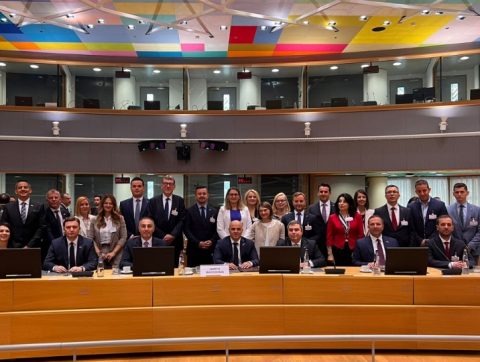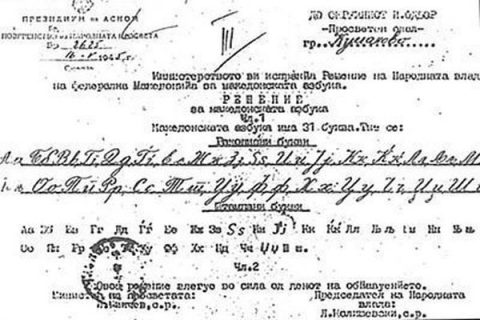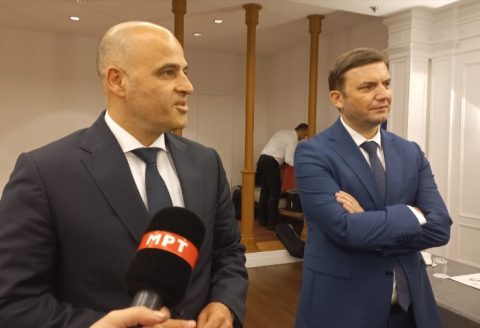While today in Brussels our state delegation is taking photos at the photo session dedicated only to the initial step for the official start of Macedonia’s EU accession negotiations, it still remains unclear why the Minister of Foreign Affairs does not publish the Macedonian unilateral declaration on the Macedonian language.

Bulgaria did it and the content of its declaration is already known to the domestic public. With it, official Sofia indicates that the reference in EU documents to the official language of the Republic of Macedonia should in no case be interpreted as recognition of the “Macedonian language” by the Republic of Bulgaria.
The declaration also states that:
The Bulgarian literary language has six regional written norms (codifications). Three of them are based on dialects, and three on the literary Bulgarian language.

The creation of the “Macedonian language” in 1944-1945 in the former Yugoslavia was an act of secondary codification (re-codification) based on the Bulgarian literary language, further “enriched” with local forms, thereby simulating a “natural” process based on a dialectal form.
With measures in three documents – Negotiating Framework, Council conclusions and bilateral protocols – Bulgaria establishes measures for strict implementation of the 2017 Good Neighborly Agreement from Skopje, which the EC will follow.
Why, at a press briefing on July 2 this year, speaking about Macedonia’s unilateral declaration on the Macedonian language, Minister Osmani used almost identical wording, so among other things he said:
I think that theirs is according to the Portuguese proposal, if I am not mistaken, it is their position that: “It did not exist before 1945, that it was one of their dialects.” From our side – it is not defined yet. If the Portuguese proposal if followed, it should be: ” The Macedonian language is the official language of the Republic of Macedonia which is…the modern Macedonian language was codified in 1945 as a secondary codification, not as a primary (Telma TV, July 2, 2022).

Obviously, Osmani uses the identical wording for the Macedonian language as contained in the Bulgarian Declaration – “…the modern Macedonian language was codified in 1945 as a secondary codification, not as a primary one”. Does this mean that Minister Osmani and the Government have accepted that the Macedonian language is derived from Bulgarian, and not from the Slavic group of languages!?, asks “Pressing TV”.





Comments are closed for this post.